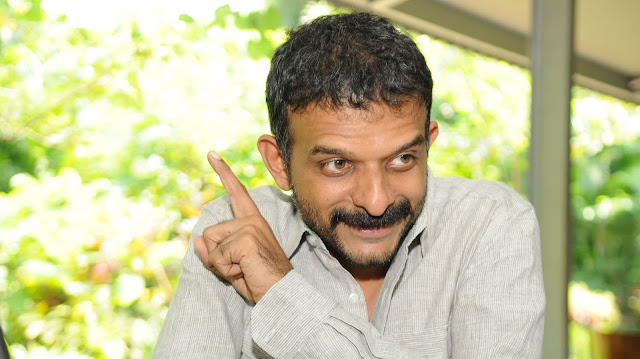'I will continue to let music show me the way'
TM Krishna talks about exploring water in lyrical terms, his efforts to promote inclusive music, and his response to his critics
Thodur Madabusi Krishna, one of the recipients of this year’s prestigious Ramon Magsaysay Award, is more than a musician. An activist, teacher, lecturer, speaker, and author, Krishna is considered a genius who has shaken the foundations of the Carnatic music world by questioning popular beliefs. His initiatives — the Urur Olcott Kuppam festival, Svanubhava, Sampradaya and Shabda, among many others — have made Carnatic music accessible to all.
I chat with the fireball vocalist, who will showcase a thematic concert on ‘Music and Water’ on October 7 at Kalakshetra. Excerpts...
You have been recognised worldwide for taking classical music to the masses. How do you come up with such innovative ideas every time?
Through our work, we attempt to break barriers, inhibitions, complexes and fears that societies have built to keep control, ownership and power in art and culture. Therefore, most of my ideas originate from the belief that we need to allow art to breathe and flow freely, through which people can hopefully come together.
Tell us more about your presentation on ‘Music and Water’. Why did you choose the topic?
I hope to explore Carnatic music’s conversation with water in lyrical and contextual terms, and at the same time wonder about the musical experience of water — stillness, flow, trickle, rush, flood, thirst, satiate and colours, which are experienced in abstraction.
How do you present interesting concepts to rasikas every time?
The real effort in working on such themes is not in gathering information. The invigorating process is the introspection and interpretation. It is in this internalising that ideas are born.
You have tried to explain why you broke the mould as far as kutcheri formats are concerned. Do you think you have been successful in your attempt?
Success has never been the objective of working with the concert as an aesthetic representation of Carnatic music. It is one part of a long journey. I have and will continue to allow music to show me the way…letting myself drown in the music has been the only conscious decision. The rest, I let it happen.
You withdrew from the Chennai music season and then you began Urur Olcott Kuppam Festival.
How was it like to democratise the performance space?
I have done nothing by myself. We are a collective of people from all parts of Chennai, including, Urur Kuppam, Adyar, Alwarpet, T Nagar, Anna Nagar and many other suburbs. We have been able to ignite artistic hope through the Urur Olcott Kuppam initiative. The vizha, today, is a metaphor, a symbol, a possibility. I do hope this inspires many others to push the boundaries of form, context, access and space. I am already seeing other experiments, which is wonderful.
But what made you take the art to the grassroots, and attempt to change the outlook towards music?
All this is not just about Carnatic music. It was the starting point, since that is the art I practice. But it is more about letting art and culture spread their wings beyond the social cloisters that constrict them. Like I have said many times, all this comes from my own musical experience. Through those moments of art when all conscious divisions that restrict my mind disappear, it moved me to think about what we can do to allow that experience to live in the socio-cultural-political space. And may be if we can enable more such experiences, we will live with greater understanding and sharing.
You stick to what you believe in and you’re completely fearless about expressing yourself. What do you have to say to those who refer to you as an average singer, an armchair critic — etc?
I do not respond to any comment that comes from people who have not seriously engaged with the initiatives I am involved in or with what I write and speak. I have always been open to discussions but it is hard to engage in conversations with those who are unwilling (for many reasons) to really see, listen or comprehend.
Over these years, you have evolved as a musician, who respects all art forms, engaging the audience in a discussion about art, religion and caste. How do you simplify these issues and take it to the fisher-folk?
To presume that such ‘issues’ need to be simplified for the understanding of the fisher-folk is condescending and wrong. Secondly, to think that we, the so-called educated, somehow have a greater ability to understand these issues is a complete mistake. We are all human beings grappling with the same issues, sharing ideas, learning and hoping that in the process we all grow as people. The removal of ingrained mental hierarchies is an essential part of any such engagement and unless all of us think deeply about this, no amount of collective work will change society.
What’s next? Another book in the making?
Yes, there is a book on its way. Right now, I am on the research mode!
(The piece was originally written for The New Indian Express)



Comments
Post a Comment